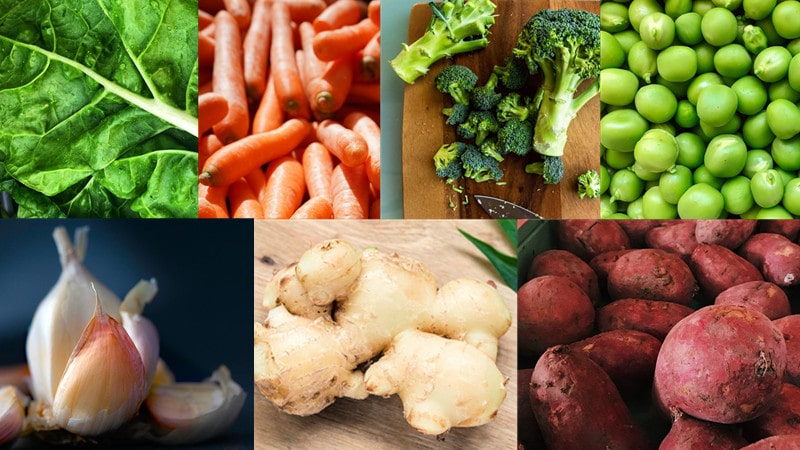
Since your overall health depends on what you eat, you have to ensure that your daily meals are properly balanced with all the necessary nutrients, minerals, and fats. One of the main types of foods that you have to include in your diet is vegetables.
Fortunately, there is a wide variety of vegetables that you can incorporate into your diet for maximum health benefits. This article offers you the 11 healthiest vegetables.
Why Is It Important to Eat Vegetables?
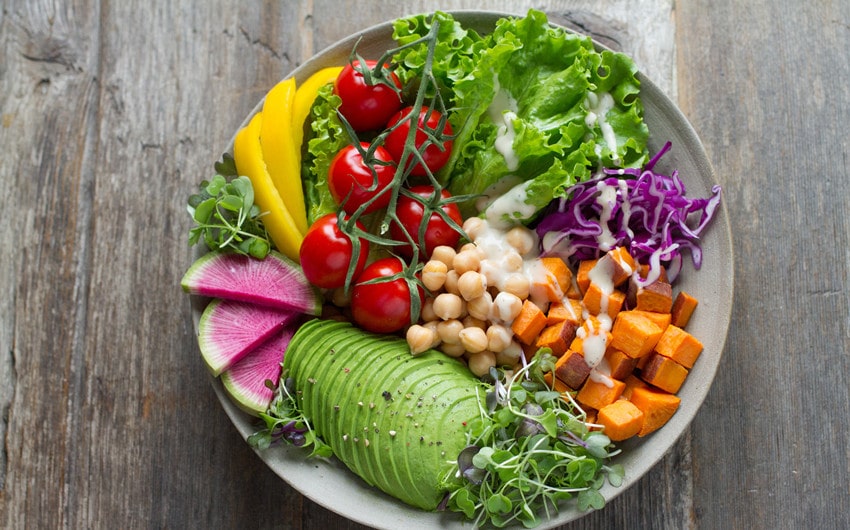
Vegetables offer a variety of health benefits like reducing your risk of getting chronic ailments and boosting your immune system. Here are some of the most common nutrients you will get when you eat different types of vegetables.
• Potassium: Vegetables are vital sources of various nutrients, such as potassium, nutritional fiber, folate (folic acid), and vitamin A and C. With enough potassium in your diet, you will always enjoy healthy blood pressure. Vegetables that are rich in potassium include sweet potatoes, white potatoes, white beans, tomato products (paste, sauce, and juice), beet greens, soybeans, lima beans, spinach, lentils, and kidney beans.
• Fiber: The dietary fiber found in vegetables helps to reduce blood cholesterol levels, lowering the risk of heart disease. Fiber is an important part of proper bowel function because it reduces constipation and diverticulosis. Additionally, foods that are rich in fiber such as vegetables provide a feeling of fullness without adding excess calories to your body.
• Folate: By eating vegetables that are rich in folate (folic acid), you will be helping your body to form red blood cells. Folic acid is particularly important for women of childbearing age who are likely to get pregnant. They should consume enough folate from foods or take 400 mcg of synthetic folic acid from fortified foods or supplements daily. This reduces the risk of neural tube defects, spina bifida, and anencephaly during fetal development.
• Vitamin A and C: Vitamin A keeps your eyes and skin healthy and protects you against infections, while vitamin C helps to heal cuts and wounds, and keeps your teeth and gums healthy. Vitamin C also aids in iron absorption.
What Are the Health Benefits of Eating Vegetables?
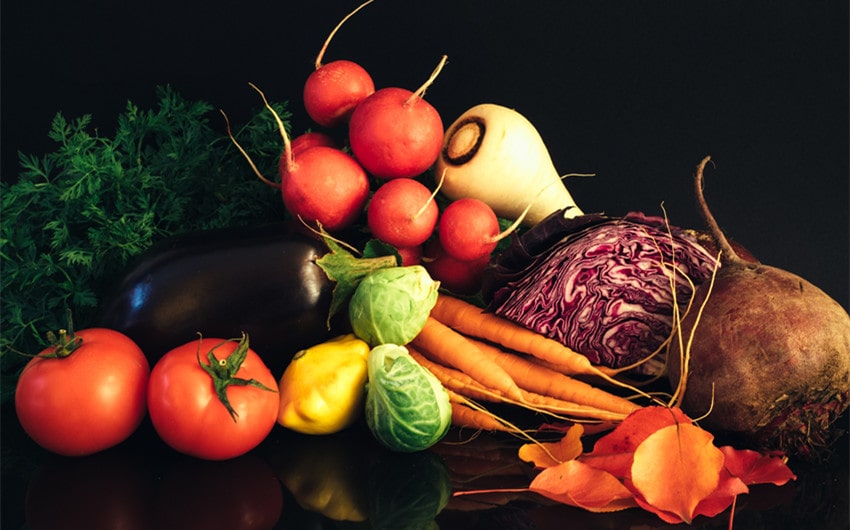
As mentioned above, regular consumption of vegetables can protect you against different chronic diseases like diabetes, obesity, cardiovascular diseases, among others. Here are some of the main health benefits of eating vegetables.
• Vegetables and fruits reduce the risk of suffering from heart diseases, including heart attack and stroke
• Regular consumption of vegetables and fruits will protect you against certain types of cancers
• If your daily diet is rich in fiber from vegetables and fruits, it will help you to reduce the risk of heart diseases, obesity, and type 2 diabetes.
• Vegetables and fruits that are rich in potassium will lower your blood pressure, and may also reduce the risk of developing kidney stones and bone loss
• Eating vegetables that are lower in calories per cup instead of high-calorie foods is useful in helping you to lower calorie intake
11 Healthiest Vegetables to Include in Your Diet
1. Spinach

Spinach is a plant with green leaves known for its impressive nutrient profile. Studies have shown that 30 grams of raw spinach will provide you with 56 percent of your daily vitamin A needs and enough vitamin K. The same amount of spinach only has 7 calories.
These green leaves also have a lot of antioxidants, which prevent you from getting chronic ailments. Studies have also shown that these dark green leaves have high levels of beta-carotene and lutein antioxidants that help to reduce the risk of cancer. Furthermore, spinach can help you to improve the health of your heart, especially since it lowers blood pressure.
2. Carrots

Since carrots are packed with vitamin A, you can get 428 percent of your daily vitamin A needs by adding only 128 grams of carrots to your daily meals. Like spinach, carrots contain large amounts of beta-carotene, a special antioxidant that offers carrots their exciting orange color. This antioxidant also helps to prevent cancer.
A weekly serving of carrots reduces the risk of prostate cancer by 5 percent. A study revealed that regular consumption of carrots helps to reduce the risk of lung cancer. Other important nutrients found in carrots include vitamin C, vitamin K, and potassium.
3. Broccoli

Broccoli is a green plant belonging to the family of cruciferous vegetables. It is packed with a sulfur-rich plant compound referred to as glucosinolate and its by-product, sulforaphane. Sulforaphane can protect you against cancer. In an experiment, sulforaphane was able to reduce the size and number of breast cancer cells while hindering the growth of tumors in mice.
You can also prevent several other chronic diseases by eating broccoli regularly. You can get 116 percent of your daily vitamin K needs and 135 percent of your daily vitamin C needs, plus a significant amount of manganese, potassium, and folate from 91 grams of broccoli.
4. Garlic

For many years, garlic has been used as a medical plant. Its main compound is allicin which is responsible for the plant’s wide range of health benefits. Scientists have discovered that garlic regulates blood sugar and promotes heart health. Regular consumption of garlic oil or diallyl trisulfide (a component of garlic) can decrease your blood sugar and improve your insulin sensitivity.
It is also clear that garlic prevents cancer. Scientists have proved that allicin can induce cell death in the human liver with cancer cells. But further research is needed to help scientists understand better the potential of garlic and its anti-cancer effects.
5. Brussels Sprouts
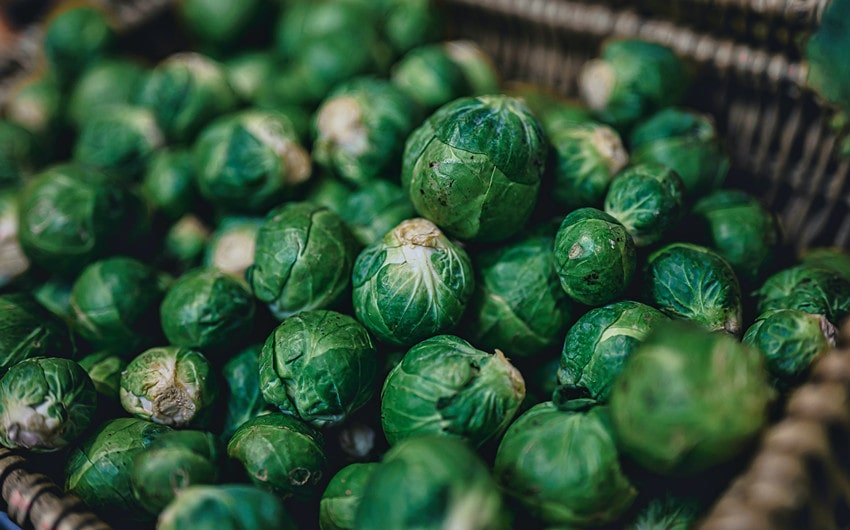
This is another type of vegetable that belongs to the cruciferous family and it is rich in the same compounds and nutrients found in broccoli. It is also rich in kaempferol, a very important antioxidant that prevents damage to cells. Studies have shown that kaempferol protects your cells against free radicals that cause oxidative damage to cells, making you susceptible to chronic diseases.
You also need to eat Brussels sprout regularly to help you with detoxification. It has been found to increase specific enzymes that regulate detoxification, which decreases the risk of colorectal cancer. Each serving of Brussels sprout will provide you with a good amount of vitamins and minerals, including potassium, folate, vitamin K, vitamin C, and manganese.
6. Kale

Kale is a popular plant with green leaves that are known for their health-promoting potentials like nutrient density and antioxidant properties. With just 67 grams of raw kale, you will get enough of your daily vitamin B, potassium, calcium, and copper needs. This amount of kale will also satisfy your daily needs for vitamins A, C, and K.
This vegetable also helps to promote heart health, especially due to its large amounts of antioxidants. If you drink 150ml of kale juice for about 12 weeks, you can reduce your LDL cholesterol by 10 percent and increase your HDL cholesterol by 27 percent. It will also increase your antioxidant activities significantly. Studies have also shown that kale juice helps to decrease blood pressure, blood cholesterol, and blood sugar.
7. Green Peas
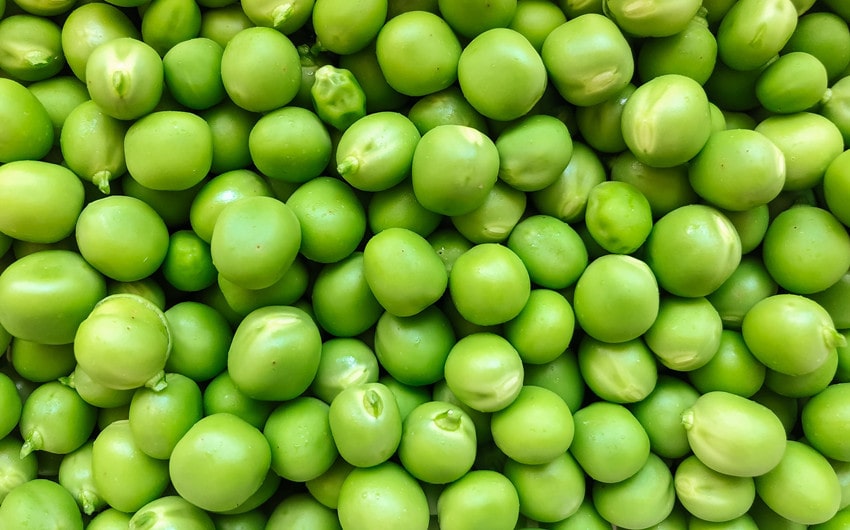
First of all, it is important to mention that green peas are starchy vegetables. Therefore, they have high levels of carbs and calories. This also means that they can affect your blood sugar levels when you eat a lot of them.
However, they are very nutritious. For example, 160 grams of green peas will provide you with 9 grams of fiber, 9 grams of protein, and large amounts of Vitamins A, C, and K, thiamin, folate, riboflavin, and niacin. They will also enhance your digestive system because they are rich in fiber. Furthermore, green peas contain saponins, plant compounds that prevent cancer.
These plant compounds help to inhibit the growth of a tumor and induce the death of cancerous cells.
8. Swiss Chard
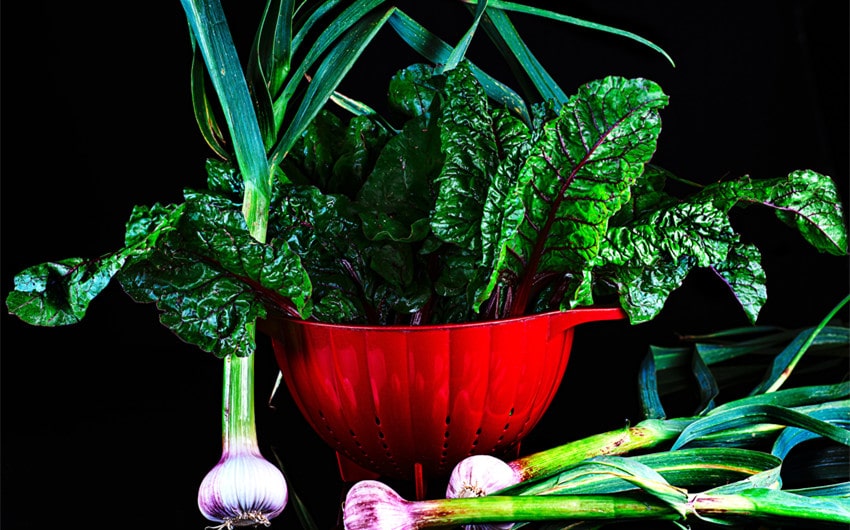
One of the reasons why many people eat Swiss chard is the fact that it is very low in calories and high in important vitamins and minerals. For instance, 36 grams of raw Swiss chard contain 7 calories, 1 gram of fiber, and large amounts of vitamins A, C, and K, magnesium, and manganese. Swiss chard is particularly important for its ability to prevent damages caused by diabetes mellitus.
It has been found to overturn the effects of diabetes by reducing blood sugar levels and stop free radicals from damaging your body cells. The antioxidant properties of Swiss chard can protect your liver and kidneys from the negative effects of diabetes.
9. Ginger

Commonly used as a spice in most dishes and desserts, ginger is known to be a natural remedy for many ailments. For instance, it is known to reverse the effects of nausea, especially in pregnant women. It also has several anti-inflammatory properties that can help you treat complications related to inflammation, including arthritis, gout, and lupus.
Patients with osteoarthritis who are treated with a ginger extract report reduced knee pain and relief from other related symptoms. It is suggested that this vegetable can be used to help the treatment of diabetes.
10. Sweet Potatoes

Sweet potatoes are classified as root vegetables. They are known for their lively orange color, sugary taste, and remarkable health benefits. A small piece of sweet potato contains 4 grams of fiber, 2 grams of protein, and a large amount of vitamins A, C, and B6, potassium, and manganese.
In fact, one piece of sweet potato can satisfy 438 percent of your daily vitamin A needs. Consumption of vitamin A helps to reduce the risk of lung and breast cancers. A type of sweet potato known as Caiapo is known to have anti-diabetic effects.
11. Red Cabbage
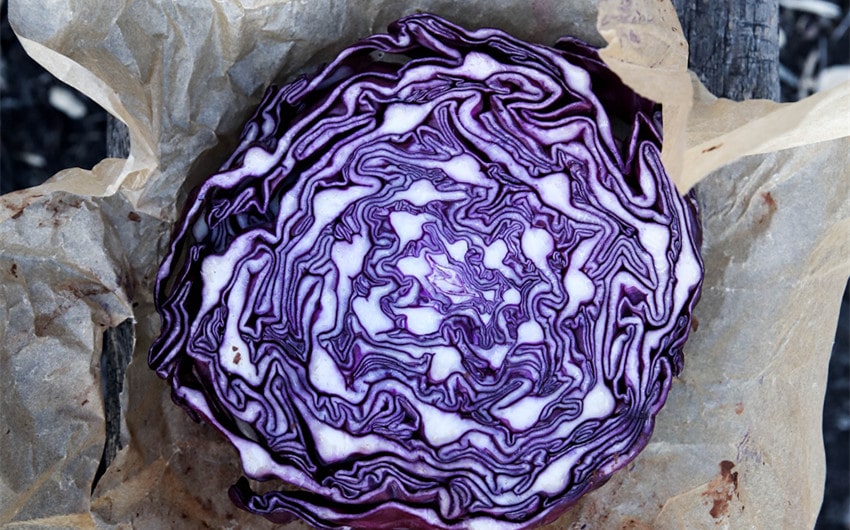
Red cabbage belongs to the cruciferous family, and it is packed with antioxidants. With 89 grams of red cabbage, you can fulfill 85 percent of your daily vitamin C needs. The same amount of this cabbage will give you 2 grams of fiber.
This type of vegetable also contains anthocyanins, plant compounds that give it a distinct color, and numerous health benefits. For instance, it reduces the level of blood cholesterol and protects your liver and heart against damages.








